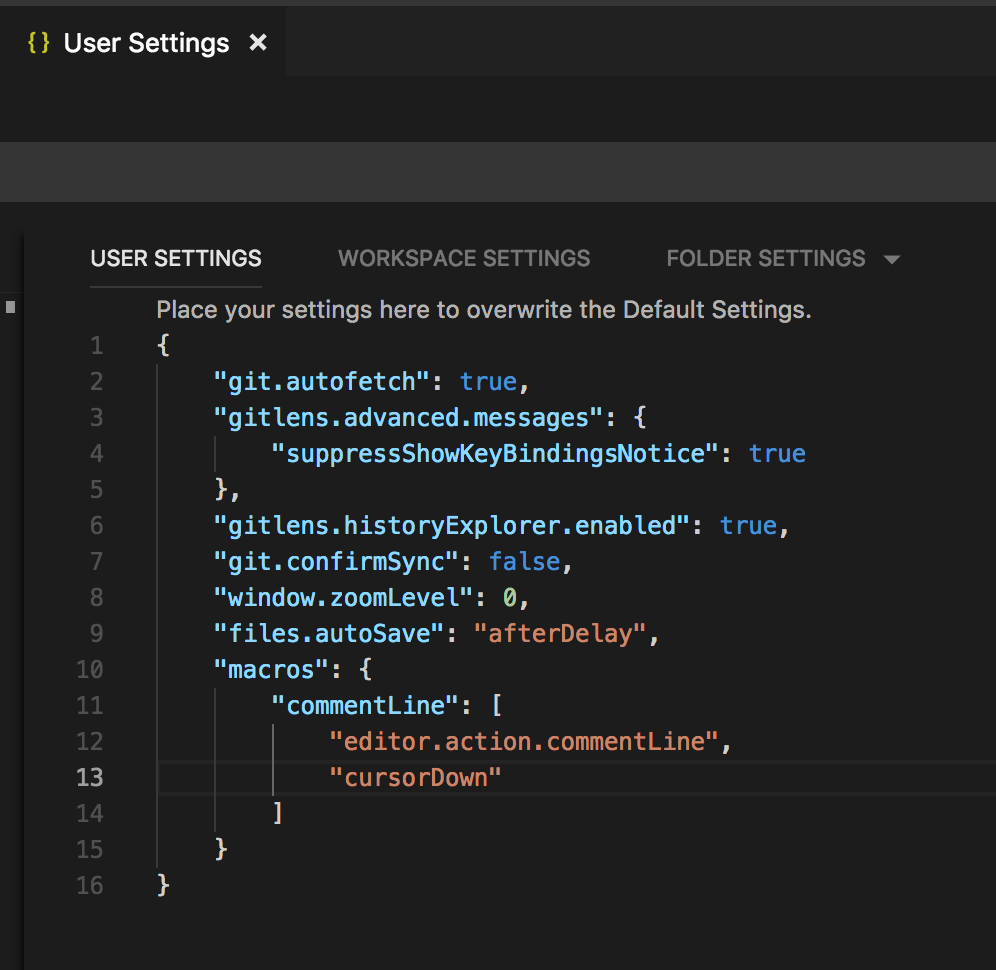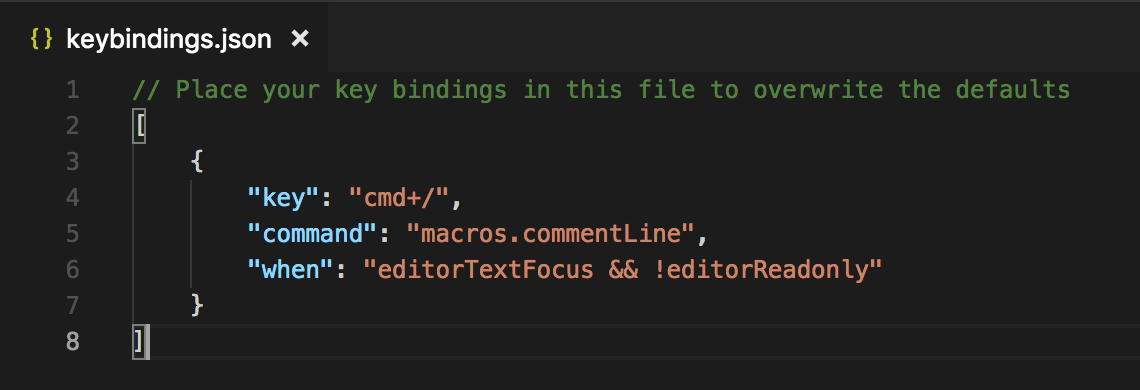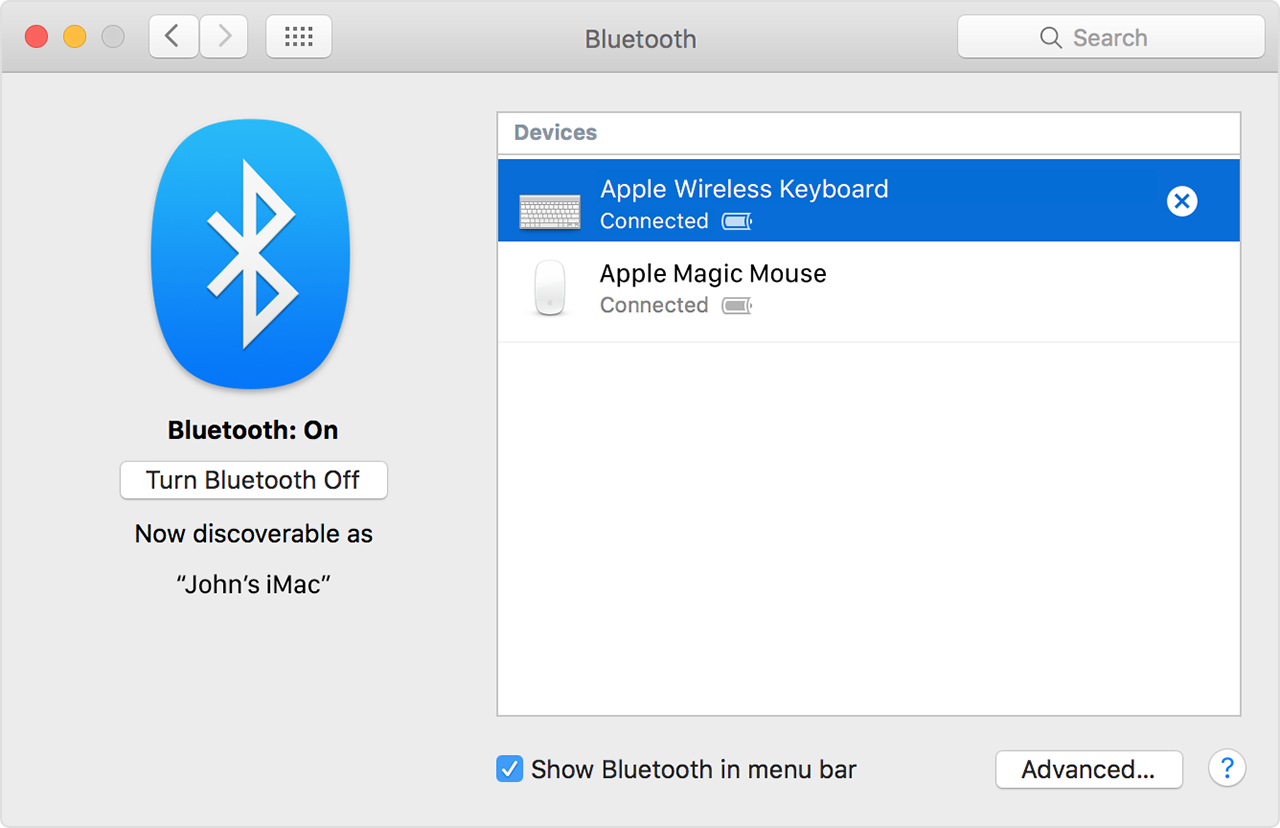This is an example how in a bash script, curl and awk work together, on gist.
Assumptions and Conditional Test execution, ignoring in JUnit
Sometime you want to ignore some test depends on environment settings. Now both JUnit 4 and JUnit 5 support the concept of assumptions.
Unit Test like this:
1 |
|
With Gradle, pass in parameter like this:
1 | $ gradle test -Pruntest=false |
References
- Assumptions and Conditional Test Execution with JUnit 4 and 5, https://reflectoring.io/conditional-junit4-junit5-tests/
Making VSCode like IntelliJ after line commented the cursor automatically moved to next line
Want to make VSCode key bindings as closed as IntelliJ key bindings like.
Firstly, install VSCode extension macros.

Open Code -> Preferences -> Settings. Add following configuration into User Settings.
1 | "macros": { |

Open Code -> Preferences -> Keyboard Shortcuts. Add following configuration into keybindings.json file.
1 | // Place your key bindings in this file to overwrite the defaults |

That’s newly added Toggle Line Comment looks like after the change:

Take over Mac OS X Bluetooth Control

Quite annoying when Bluetooth on Mac OS X is off, you can’t turn it on manually via Systme Preferences interface. Now you can install blueutil from https://github.com/toy/blueutil to solve this issue.
1 | igloo:cheatsheets root# blueutil --help |
Firstly, turn off Bluetooth service via command line:
1 | igloo:cheatsheets root# blueutil -p 0 |
Then turn on Bluetooth service via command line:
1 | igloo:cheatsheets root# blueutil -d 1 |
Setup and run DEVHINTS.IO cheatsheets on localhost
This is a static website based on Jekyll framework https://jekyllrb.com/. Need install Jekyll and .
Login as user “root” due to write permission required into /Library/Ruby/Gems directory. Install bundler and Jekyll at first:
1 | igloo:cheatsheets root# gem install bundler jekyll |
Then install all this application dependent libraries:
1 | igloo:cheatsheets root# bundler install |
Start up Jekyll website on localhost, with user “terrence” this time:
1 | terrence@igloo ~/Projects/cheatsheets (master ☡=) |
Go to URL: http://127.0.0.1:4000 start searching and using cheatsheets in localhost environment:
To generate static web content ONLY:
1 | terrence@igloo ~/Projects/cheatsheets (master ☡=) |
Then can upload published website content from ../terrencemiao.github.io/cheatsheets directory to https://terrencemiao.github.io.
The Evolution of Mobile Phones
Bigger and bigger screen, fewer and fewer buttons, more and more entertaining, less and less thinking.
屏幕越来越大,按键越来越少。
娱乐越来越多,思考越来越少。
Always safe, Always fun
If you’re not paying for the product, you are the product.
Durex - Always safe, Always fun.

